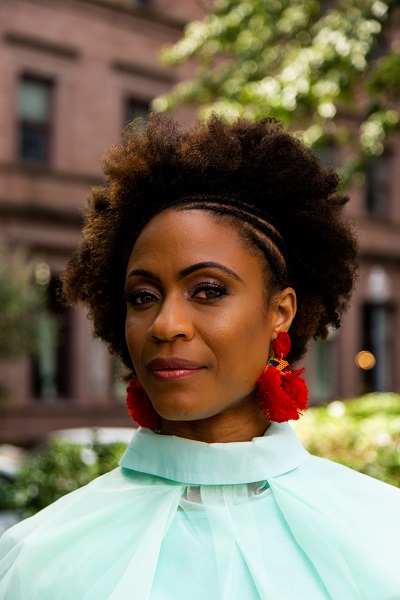
Sasha Turner, PhD
Gilman 338B
Research interests
Caribbean and African Diaspora social and cultural histories; women and children; the body and emotions; reproduction, nursing, midwifery, and community health care.
Bio
BA, History, University of the West Indies, Mona Jamaica, 2003
MPhil, Historical Studies, University of Cambridge, 2005
PhD, History, University of Cambridge, 2008
Professor Turner is a historian of the Caribbean, with current special interest in the period of colonialism and enslavement. She is especially interested in understanding the lives of women and children and how they navigated racial and gendered subjectivities.
Professor Turner’s current research examines emotions as a site of gendered racial subjectivity. Tentatively titled, Slavery, Emotions, and Gender, her new research explores the role of emotion in structuring the power struggles that defined enslavement, including how enslaver and enslaved deployed emotion for social, cultural, and political goals. The preoccupation with feelings and the drawing of boundaries (albeit shifting, overlapping, contradictory, and contested) between those who could feel and those who could not, and what one should feel and how one should express feelings suggest the intersection of emotions and the construction race and gender hierarchies. She is further interested in understanding how political expediency, cultural expectations, and spiritual beliefs that structured Caribbean slave society prescribed appropriate expression of emotion defining individual belonging and community formation.
Professor Turner’s interest in emotions emerged from her first book, Contested Bodies: Pregnancy, Childrearing and Slavery in Jamaica (University of Pennsylvania Press, 2017). She became motivated by the inexplicable sense of loss she felt conducting research into the high rates of infant and child mortality in the Caribbean colonies. After spending years piecing together the ritual and community lives of enslaved women, their dead children were not simply statistics recorded on a page; enslaved women were flesh and blood people whose lives remained haunted by the specter of death. Professor Turner wanted to know more about what these deaths meant for enslaved women who experienced death on a daily basis, and how the peculiar circumstances of a life of enslavement shaped feelings and emotions.
Professor Turner’s first book and essay on black maternal grief has received numerous awards, including: The Berkshire Conference of Women Historians Prize, awarded for first best book that deals substantially with the history of women, gender, and/or sexuality; The Julia Spurill Prize, awarded by the Southern Historical Association of Women Historians, for the best published book in southern women’s history; The Murdo J. McLeod Prize, awarded by the Latin American and Caribbean Section of the Southern Historical Association, honorable mention for the best book in the fields of Latin American, Caribbean, American Borderlands, and Frontiers, or Atlantic History; The Maria Stewart Prize, awarded by the African American Intellectual History Society, for the best article concerning black intellectual history; The Letitia Woods Brown Memorial Prize, awarded by Association for Black Women’s History/Association of African American Life and History, for the best article in African American/African Diaspora Women’s History; The A. Elizabeth Taylor Prize, awarded by the Southern Historical Association of Women Historians, for the best article in the field of southern women’s history, 2018; The Judith R. Walkowitz Prize, awarded by the North American Conference on British Studies, honorable mention for the best article relating to gender and sexuality in British culture; The Kimberly Hanger Prize, awarded by the Latin American and Caribbean Section of the Southern Historical Association, honorable mention for the best article in the fields of Latin American, Caribbean, American Borderlands, and Frontiers, or Atlantic History.
Professor Turner’s research has been supported by many distinguished fellowships, including Yale University’s Gilder Lehrman Center for the Study of Slavery, Resistance, and Abolition Fellowship; Rutgers University Race, Ethnicity, and Gender Studies Fellowship; Washington University in St. Louis African and African American Studies Fellowship; and the Richards Civil War Era Center and Africana Research Center Fellowship at the Pennsylvania State University.
In addition to her scholarly works, Professor Turner writes and lectures widely in the US and overseas on the social and cultural history of the Caribbean and the legacies of colonialism and enslavement. She also serves as Co-President for the Coordinating Council for Women in History.